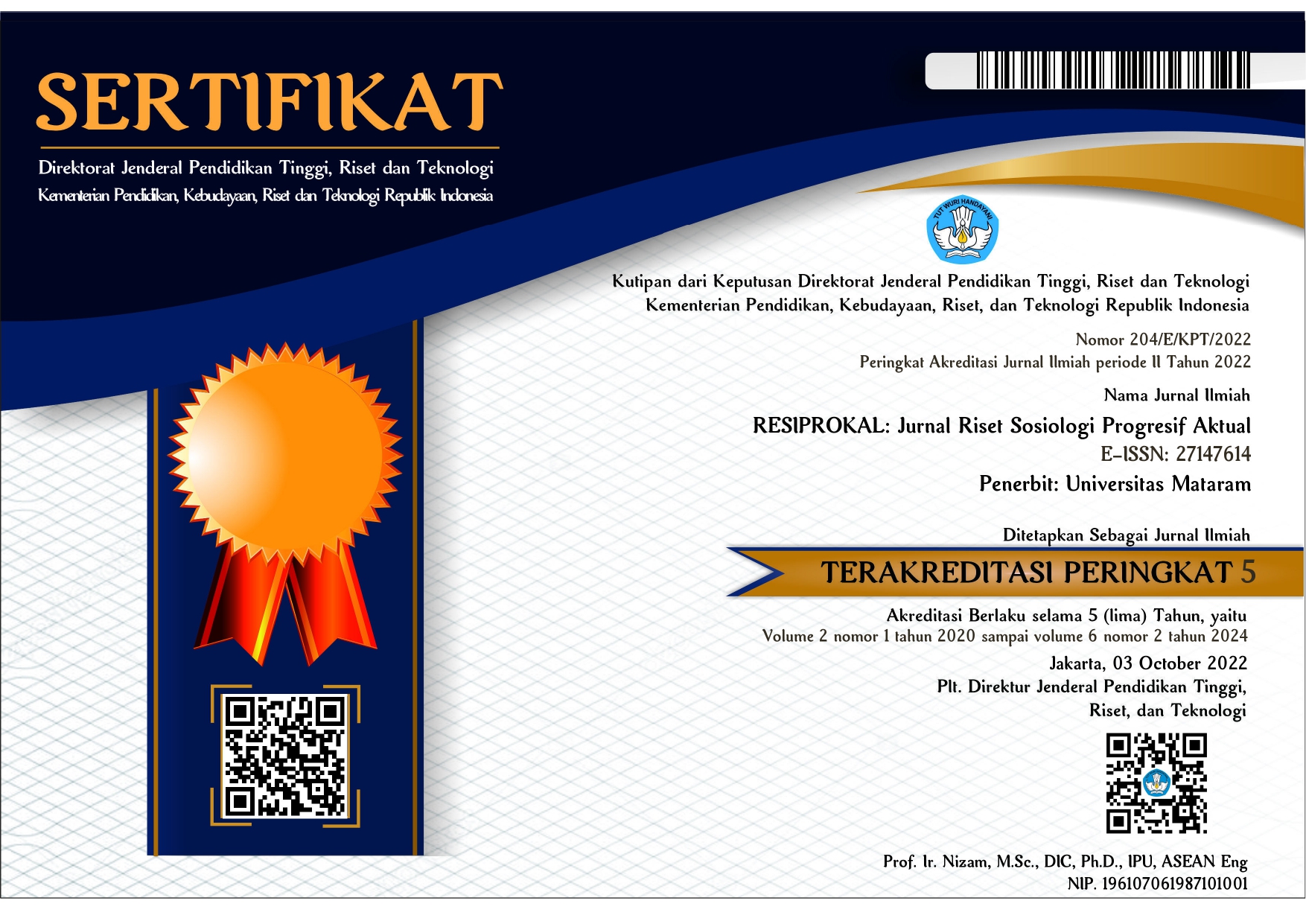Analisis Tipologi dan Komodifikasi Simbolik Warung Muslim di Singaraja-Bali
DOI:
10.29303/resiprokal.v5i2.402Published:
2023-12-09Issue:
Vol. 5 No. 2 (2023): DesemberKeywords:
Symbolic Capital, Symbolic Commodification, Muslim Food StallArticles
Downloads
How to Cite
Idris, M. ., Nur, I. ., Syahrin, A. A. ., & Maulana, M. A. Y. . (2023). Analisis Tipologi dan Komodifikasi Simbolik Warung Muslim di Singaraja-Bali. RESIPROKAL: Jurnal Riset Sosiologi Progresif Aktual, 5(2), 147–161. https://doi.org/10.29303/resiprokal.v5i2.402
Downloads
Download data is not yet available.








